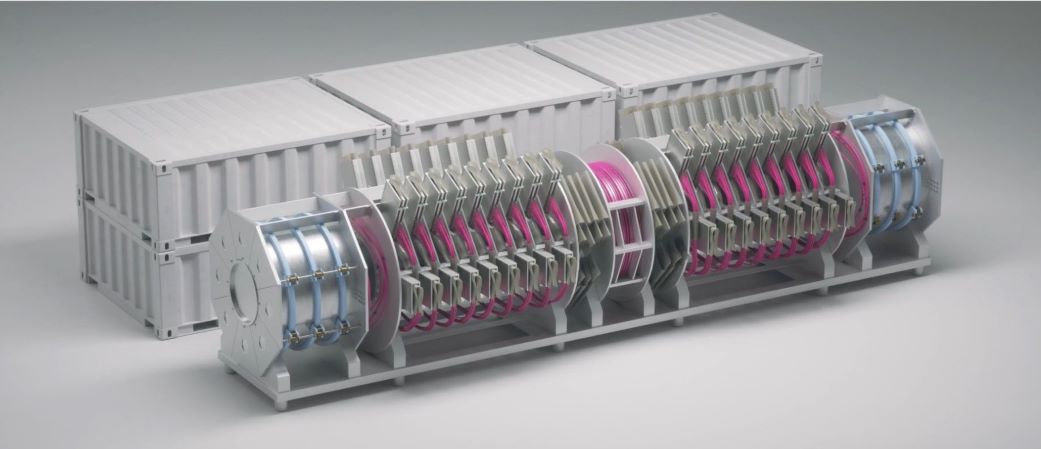Why did Microsoft buy non-existing fusion energy from Helion?
Backed by substantial venture capital, Helion Energy, a startup from Washington state, has unveiled plans to complete construction of a fusion power plant within an ambitious five-year timeframe.
Currently, Helion Energy is building the seventh reactor for fusion energy, aiming to harness at least 50 MW of electricity within one year.
This bold move challenges the prevailing expert opinion, which generally holds a more protracted timeline for the realization of practical fusion energy, but two reasons fuel incentives into this project.
Firstly, the company has raised around 500 million US dollars from investors and expects the total financial injection to reach 2.2 billion dollars by the end of this year. Helion's board chairman and primary investor is Sam Altman, co-founder of OpenAI. It means this energetic innovative AI developer too is contributing ideas and resources to fusion energy.
Secondly, tech giant Microsoft has signed a pioneering agreement with the startup, marking the world's inaugural power purchase arrangement centered around fusion energy. Under the deal, Helion Energy commits to delivering emissions-free energy as specified in their agreement by the end of 2028; failure to do so would entail penalties. The details of the Helion-Microsoft agreement have remained undisclosed.
Fusion energy, an environmentally promising and potentially abundant electricity source harmful carbon emissions or long-lived waste that scientists have been pursuing for decades, is still in the phase of experimentation and Helion is the sole potential producer speaking of demonstrating its electricity production by 2024 and commercial fruition by the end of this decade.
Some experts cast doubt that this goal is feasible.
How Helion gets fusion energy
Nuclear fusion reactors harness the same reaction that powers the stars, in which atoms are smashed together to produce vast amounts of energy. Efforts to tame the process on Earth have been underway for decades, but the complexity of the problem means that most experts predict we’re still a long way off from fusion being a reliable source of electricity.
The challenge lies in the intricacies of its production - a process involving the collision of atoms at extremely high velocities, followed by the conversion of resultant energy into usable electricity devoid of carbon emissions or radioactive waste. Operating at temperatures surpassing 100 million degrees Celsius, the process typically strains equipment stability.
Helion relies on a somewhat unconventional approach to nuclear fusion. Its method works by firing high-energy lasers at a tiny piece of fuel. Most other fusion experiments over the years have used tokamaks - doughnut-shaped vessels that use powerful magnets to contain plasma, which is then heated up to fusion temperatures.

Illustration of a Helion fusion reactor. Credit: Helion Energy
And while most fusion schemes rely on two hydrogen isotopes as fuel - deuterium and tritium - Helion’s process uses a rare gas called Helium 3 that could be hard and expensive to source.
According to MIT Tech Review, the approach Helion is taking is called a “pulsed non-ignition fusion system.” It also relies on magnets to contain a super-heated plasma, but rather than heating it further to fusion temperatures, the magnets are used to smash two rings of plasma together at a million miles an hour to trigger a fusion reaction.
Helion Energy was founded in 2013 by David Kirtley, John Slough, Chris Pihl, and George Votroubek. That year, the management team won the National Cleantech Open Energy Generation competition and awards at the 2014 ARPA-E Future Energy Startup competition, and were awarded a 2015 ARPA-E ALPHA contract called "Staged Magnetic Compression of FRC Targets to Fusion Conditions."
In 2022, the company was one of five finalists for the 2022 GeekWire Awards for Innovation of the year, specifically for fusion energy startup category. In 2023, it was one of five finalists for the 2023 GeekWire Best Workplaces of the year.







